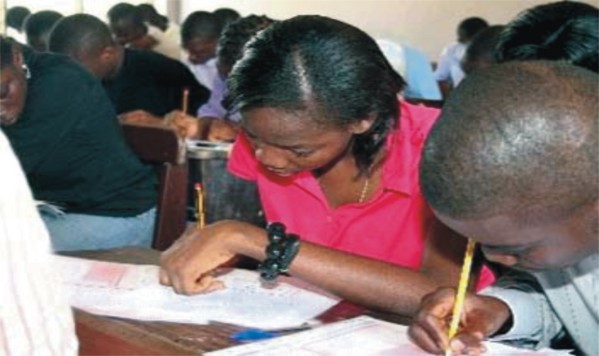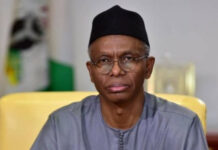By Odimegwu Onwumere Tel: +2348032552855
Nigerian leaders in different tiers of government and endeavours have done everything humanly possible to elevate the status of the Nigerian children, but with slim results. Their efforts range from the enactment of Corporate Social Investment (CSI) to Corporate Social Responsibility (CSR); from Basic Education policies to Parent Teacher Association; from Insurance to essay competitions, and others. They are of the opinion that the children are the future of tomorrow.
But from all indication, there will be no utopian future for the children if the ground is not softened for them today. There is manifest that the Nigerian children will not measure up with their counterparts in other climes if today is not put up properly for them to attain the future, full of hope and aspirations.
One calculation is that the Nigerian children need insurance today to guaranty their future. Writing, Sunday Ojeme, a media expert said that any well-meaning government of the day should not wave the matter of insurance with the back the hand. He, however, stressed that this medium has been relegated to the background, due to the uneasiness to claim payment from the insurers.
“Insurance, which ordinarily should command more respect in this regard, has been relegated to the background due to the long standing credibility problem, especially as regards claims of payment. In the developed world, insurance remains an institution that the government of the day does not toy with; hence enough provision is always made to ensure that everybody is well covered,” he said.
Further, Ojeme held that for example, President George Bush of the United States and the US Senate once had to argue over the State Children’s Health Insurance Programme; the senators had demanded that more money be budgeted for the programme.
In his account, another example was from the Managing Director of Trevor Investments, Mr. Chuka Nwabunor, who was of the philosophy that the operators of insurance companies needed to convince parents beyond words in order for them to gear up interests in insurance to guaranty the future of their children.
Ojeme squabbled that insurance is essential for the children to secure money to back endowment plans. Notwithstanding, he advised that in the event that parents wanted to plan for their children through insurance, they should be acquainted with how much they would earn and at what year that the money would be due. Child labour would be sent on errand, if parents deposit in insurance.
But many backgrounds accept child labour, which has been characterized by individuals and organisations as an inimical form of bringing up a child, as normal. Nonetheless, there is no ruling out the fact that children in the country also have responsibility.
Another media professional, Ebere Nwiro would not have said that there was a report by The Nigerian NGOs, which revealed that a staggering 15 million children under the age of 14 are working across Nigeria, if the children’s future is guaranteed through a portal like the insurance.
Nwiro frowned that these Nigerian children are exposed to long hours of work, but especially, in hazardous and injurious environments. Like Ojeme warned that if the future of the children is insured, it is conspicuous that there would be no tendencies of them carrying too much liability for their age. Yet, working with little food, small pay, no education and no medical care, Nwiro cried.
Nwiro had this to say concerning the reason behind the children’s suffering: “While children have always worked in Nigeria, the figures have significantly increased over the years. The end of the oil boom in the 70s, coupled with mounting poverty, has driven millions of children into labour.”
Studies and reports, especially from the International Labour Organization (ILO), according to Nwiro, showed that child labour has been made worse in the recent times, because some of these children have no solid background, no education and no parental care.
“In the circumstances, they become street hawkers. They work in the streets during the day, and work even at night in some cases. Such lifestyles become very dangerous and nomadic types of life. There is little wonder therefore, that the future of these children is very dark and bleak,” he said.
These children who are subjected to carry their family responsibilities today, without doubt, have a bleak future. Many are hidden from public view, because of the harsh situations they work in.
While their parents hinge their actions on their children on poverty, Nwiro had to posit that Child Rights activists also submitted that lack of access to education is a major reason for the child labour bog.
On the other side, government at all levels is not carving a niche for the children today, to attain a beaming future. Apparently, a meeting held in Kaduna by the United Nations Children’s Fund (UNICEF), showed that about three years after the Child Rights Act was established and passed by virtually all the 17 southern States in Nigeria; regrettably, only three out of the 19 northern states had passed the Child Rights Act.
The law, it was learned, seeks to promote the rights of children to a better life and protect them against the vagaries of exploitation, abuse and exploitation. Rabiu Musa, UNICEF Communications Officer had stated.
Not even the UNICEF’s engagement of parents, the three tiers of government and institutions, including NGOs, to address issues of child labour and trafficking, have curbed the bad situation that the Nigerian children are facing today.
No Nigerian is sure what could have happened to the children if the Nigerian Government had not in August, 2003, officially adopted three International Labour Organisation (ILO) conventions setting a minimum age for the employment of children. Even by going as far as signing a Memorandum of Understanding (MoU) in cooperation with ILO to launch a country programme under the International Programme for Elimination of Child Labour (IPEC).
“When this Nation has attained its true height in the near future, let it be our known that as true citizens of this great nation we ensured that by conscious effort, might, will power and strength of character, we ensured that after all is said and done more is done than said,” reportedly said Deo Avante.
Investigations have revealed that the authorities can still ensure that “more is done than said” to the Nigerian children today for their better future. Connoisseurs on the wellbeing of children had reiterated that the United Nations Convention on the Rights of the Child has to be reinvented and implemented, since it defines a child as any human being under the age of eighteen.
The United Nations Committee on the Rights of the Child, which is composed of members from countries around the world, has to monitor the compliance of this law, since the United Nations General Assembly adopted the Convention and opened it for signature on 20th November 1989 (the 30th anniversary of its Declaration of the Rights of the Child), and it came into vigor on 2 September 1990, after it was put through by the expected number of nations. Nigeria should remember that she is one of the 194 countries, as of November 2009, that have ratified it.
“When the various human rights documents are considered, even though they are applicable to all human beings, they are not necessarily child specific and fail to address the peculiar needs of children. For the rights of the child, an International law or “International Convention” was required; hence the convention on the Rights of the Child (CRC). And in addition, the OAU Assembly of Heads of States and Governments adopted the African Union Charter on the Rights and Welfare of the Child (CRCW) in July 1990,” expressed Dominic E. Obozuwa, LLB, BL, Associate, Wali-Uwais & Co in “Nigeria @ 50, Protecting The Future Of This Nigerian Child The Future Leaders Of This Nation: A Look Again At The Child Rights Act.”
Gordon Brown, former Labour prime minister in UK, significantly pointed out in “Challenges of educating Nigeria’s out of school children” that Nigeria has to see to her nearly 1.3 million shortage of teachers, and the lack of basic infrastructure, and the shortfall of up to 1.2 million classrooms. She should also arrest the issue of gender and religious biases, and sheer cost for poorer families that are constraints, which are among the major factors that allow only fewer children in school each year.
Estimations are that leaders in different tiers of government and endeavours in Nigeria should not foster in the denying of any boy or girl the right to education for the future. These judgments posited that money amounting to billions of dollars from international donors have to be properly utilised. It is not sugarcoated position that 10.5 million primary school-age Nigerian children are not in education, and that Nigeria is home to the world’s largest out-of-school population.
Odimegwu Onwumere, a Poet/Writer, writes from Rivers State.











